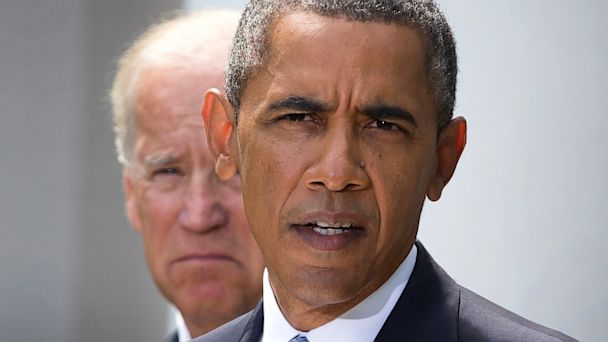How President Obama Decided to Seek Congressional Approval for Syria
WASHINGTON - It took seven days for President Obama to arrive at his decision to seek congressional approval for intervention in Syria's bloody civil war.
Offering a partial glimpse into Obama's decision-making process, senior administration officials tell ABC News it all began when the president told his National Security Council a week ago that Syria's use of chemical weapons likely warranted a military response.
The officials, who gave the information on the condition not to be attributed by name, say the directive spurred the government into preparing scenarios and consultations with Congress - although none believed authorization from Capitol Hill was necessary or desirable.
But the final decision to act didn't come until Friday. Around 6 p.m., during the wrap-up of a meeting between Obama and Chief of Staff Dennis McDonough, the president unveiled the idea while walking on the White House grounds' south lawn.
An hour later his senior advisers, including Dan Pfeiffer, Ben Rhodes, and Susan Rice, were called into the Oval Office where the president told them he wanted to push for Congress' backing.
The advisers were dismissed to make the logistics happen and the president called Vice President Joe Biden, who was publicly scheduled to be in his home state of Delaware this weekend, and other members of the National Security Council, to inform them of the decision.
As officials trickled into the White House this morning, the NSC fell into debate over two main risks: That Congress would vote "no," and the risk that Syrian President Bashar al-Assad would strike his own people with chemical weapons again. But in the end, all agreed on this course of action.
These administration officials said they believe Congress will ultimately support authorization in the end, after they return from their summer recess. As far as the risk of another attack during the debate period, the sources say that given the president has already warned the global community of the American response, Assad would be in a bad spot to attempt another chemical attack.
In his afternoon remarks, Obama did not put forth a timetable on when the U.S. could act, only that the military option would be "effective tomorrow or next week or one month from now." That guidance came from Joint Chiefs Chair Gen. Martin Dempsey a week prior to the president's decision, according to officials, and then again at the NSC meeting.

(Credit: Evan Vucci/AP Photo)
The administration says the United States has capabilities to counter any hardening of targets by Assad during the interim, and is not concerned about his abilities to move hardware.
Politically, the administration says today's announcement was Obama's idea alone. No congressional leaders had called for an authorization vote specifically, only consultation.
Congress is not due to return from recess until Sept. 9, and while lawmakers could theoretically return to business early, it ensures at least several days' delay on an outcome. The administration believes the interim will allow Obama to use the upcoming G20 summit to recruit more international and domestic support for what is necessary.